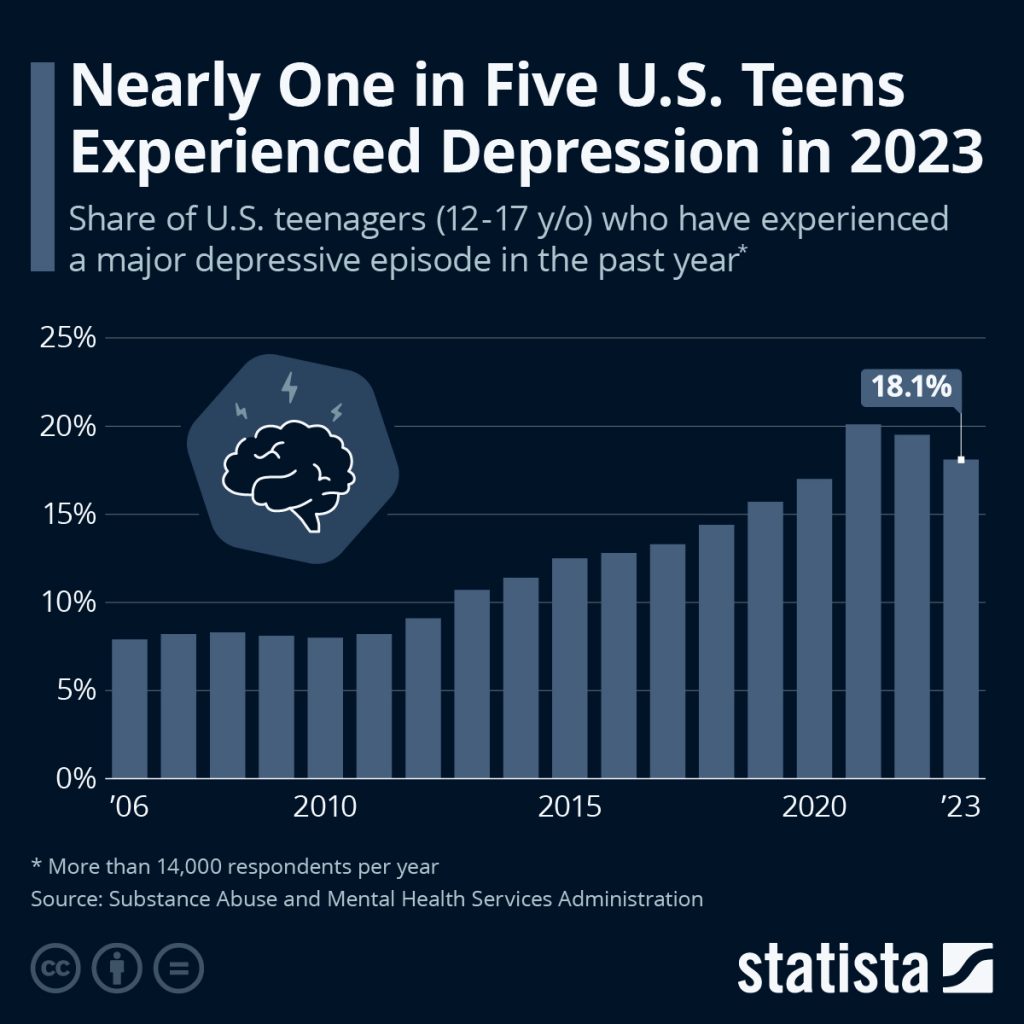(Zero Hedge)—One of the reasons governments are moving to restrict teenagers’ access to social media is the fear of its harm to mental health.
As Statista’s Anna Fleck reports, the topic has been reignited by the release of a new book titled The Anxious Generation, by New York University social psychologist Jonathan Haidt, who links the rise in mental health illness directly to the proliferation of social networks and smartphones.
While Haidt writes that social media and smartphones are not the only causes of the mental health epidemic seen in several countries, he points to how such technologies are hindering children’s healthy development by reducing their time spent playing with friends in real life, eating into time for sleeping, as well as corroding their self esteem. Even children who do not use social media are struggling, he argues, due to the changes brought about to social life. Critics say, however, that correlation is not the same as causation and that the data does not show a complete picture.
As the following chart shows, the share of U.S. 12-17 year olds having experienced a depressive episode in the past year has risen from 7.9 percent in 2006 to 18.1 percent in 2023.
While the figure has come down from the pandemic high of 20.1 percent in 2021, it is still above that of 2019 and 2020.
This is according to data from the U.S. Substance Abuse and Mental Health Services Administration. The source classifies a major depressive episode in the past 12 months if a respondent has had at least one period of two weeks or longer when they felt depressed or lost interest or pleasure in daily activities for most of the day nearly every day. Depressive symptoms include problems with sleeping, eating, energy, concentration, self-worth, or having recurrent thoughts of death or recurrent suicidal ideation.
The share of teens who had reported a major depressive episode was particularly high among Multiracial (24.4 percent) respondents in 2023, followed by white adolescents (19.6), Asian (13.7 percent) and Black teens (13.3 percent).
There was insufficient data for calculating the Native Hawaiian or Other Pacific Islander teenagers.




